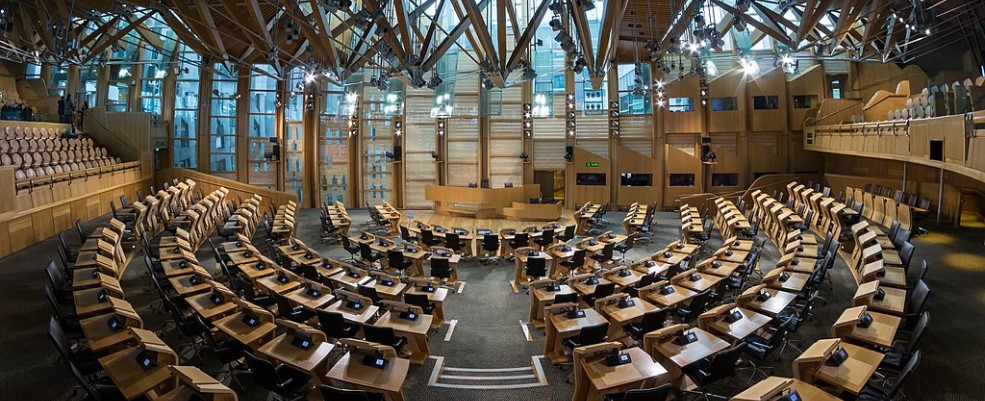Mae'r cynnwys hwn ar gael yn Saesneg yn unig.
As part of a series of blog posts on civil society and animal welfare, here we look at emerging findings from our analysis of civil society organisations’ (CSOs’) campaigning to ban greyhound racing in Wales and Scotland. This is prompted by welfare concerns and relatedly, because races in these countries are not subject to statutory regulations such as apply in England. From an international perspective, welfare concerns have seen many states ban this activity. Wales and Scotland, along with England, are amongst only 10 countries in the world where commercial greyhound racing still takes place legally.
The following provides insight into the methods that CSOs are using to press their case for a ban. The academic literature calls this their ‘repertoires of contention’ and it is worth studying because, amongst other things, it tells us about how policymaking works in the devolved nations, and provides insight into the role of civil society in contemporary attempts to redefine the way humans treat animals. As we shall see, there are several commonalities between the Welsh and Scottish cases.
Concern over animal welfare
As noted, the motivation for CSOs’ lobbying is concern over animal welfare – greyhound deaths, injury and incidences of cruelty and mistreatment. For example, this year’s report on the welfare of greyhounds by the Scottish Animal Welfare Commission (SAWC) referred to ‘the risk of injury or death at the track. It proceeded to note the oversupply of puppies and it condemned ‘the conditions under which they are reared [observing that], a significant part of a dog’s life … may be spent in kennels with restricted social contacts, and … [dogs are often subject to] neglect and poor veterinary care once their racing careers are over’. SAWC concluded, ‘We also did not find any evidence that the [greyhound racing] industry was prepared to make the radical changes that would be required to achieve improved dog welfare’.
Petitions and “advocacy coalitions”
Our analysis reveals how parliamentary petitions and CSOs’ networking for a ban are shared features of current civil society activism in Wales and Scotland. This supports our earlier findings related to Westminster. Our work shows how petitions play a key role linking civil society and lawmakers over animal welfare issues. In Wales, 35,101 people signed a petition calling for a ban on greyhound racing. Whilst in Scotland, 28,170 signed. This makes them amongst the most supported petitions since the outset of devolution in 1999.
In parallel with the petitions process, in both countries, animal welfare civil society organisations have pooled resources and information, and work together on the issue (it is a contemporary example of what the academic literature calls the formation of “advocacy coalitions”). Our analysis also reveals the way that CSOs are making relatively sophisticated use of social media to campaign for a ban. Notably, they adapt their messaging in light of shifting algorithms in order to gain greater attention across platforms – including TikTok, YouTube, Instagram, Twitter, and Facebook.
Election pledges and public consultations
A further strategy used by CSOs is developing strategic links with pro-animal welfare parliamentarians – and providing evidence to lawmakers. This has shaped parliamentary debates on the issue – such as that held in the Senedd in March. They also engage with cross-party parliamentary groups on animal welfare. Notably, CSOs are currently pressing for political parties to include a pledge to ban greyhound racing in their manifestos for the next Welsh and Scottish elections.
Our earlier research on Westminster confirms the importance of election pledges in increasing the political prioritisation of animal welfare. The current study also reveals how CSOs are using tiered policy demands in order to expedite change. Specifically, they are simultaneously pressing for increased regulation (such as the requirement for a vet to be present at all races), as well as an outright ban.
The Welsh Government was already committed to licensing of greyhound racing as part of its Animal Welfare Plan 2021-26. Yet in the wake of recent campaigning, it has said that it will launch a public consultation in response to the Senedd Petitions Committee’s recommendation for a ban. Meanwhile, the Scottish Government is also undertaking a public consultation on licensing greyhound racing with stricter regulation than exists at present. Some CSOs have expressed frustration at progress to date. They continue to press for an outright ban in both countries. This reveals another facet of their “repertoires of contention”, namely, the provision of detailed guidance and template responses – making it easier for their supporters – and the public in general, to navigate and complete the Welsh and Scottish Governments’ policy consultation webpages. This is a tactical measure to boost the response rate.
Key role for civil society organisations
These findings offer new insights into the key role civil society organisations play in pressing governments in Wales and Scotland for a ban on greyhound racing. Civil society is revealed to be both the initiator of change, as well as a source of key evidence to lawmakers. Our study also shows how networking is a key part of their activism, as individual charities and CSOs campaign together in what the academic literature calls “advocacy coalitions”. It also reveals their diverse ‘repertoires of contention’ – which include rallies and gatherings, contributing to government consultations, submitting and signing parliamentary petitions, and strategic working with parliamentarians. In addition, there is evidence of sophisticated use of social media to advance their campaigns.
Read the previous posts here:
Devolution and animal welfare lobbying: exploring the views of civil society campaigners
Research interviews by Kathleen Job.
Image credit: © User:Colin / Wikimedia Commons / CC BY-SA 4.0
(cropped)

